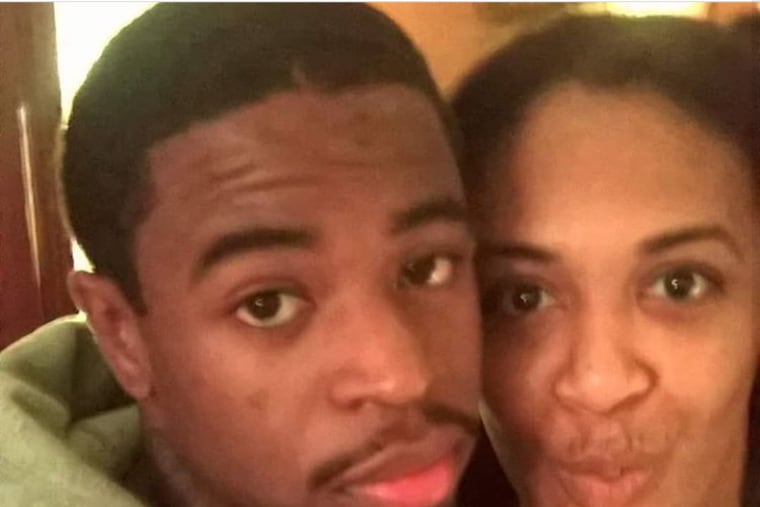Fired Philadelphia cop’s legal fate remains in limbo 2½ years after he fatally shot an unarmed black man
The shooting of Dennis Plowden by Eric Ruch still hangs in the balance, as cops across the country are being charged in real-time as part of the fallout of the George Floyd killing.

Philadelphia Police Staff Inspector Joseph Bologna Jr. struck a protester on the back of the head during a June 1 protest, and four days later his 31-year career was all but over when District Attorney Larry Krasner charged him with aggravated assault and related crimes.
“This moment demands a swift and evenhanded response to violent and criminal acts based on the facts and evidence,” Krasner said when he charged the high-ranking official.
The transition from law officer to accused lawbreaker also came swiftly for the four Minneapolis police officers charged with killing George Floyd, and the two Atlanta officers charged in the death of Rayshard Brooks. In the weeks since, two officers in Buffalo, N.Y., and six others in Atlanta have also quickly been charged with assaulting protesters.
But long before this string of arrests, the December 2017 fatal shooting of Dennis Plowden Jr., 25, by Philadelphia cop Eric Ruch Jr. had been languishing.
Ruch’s case shares a key similarity to the more recent cases: an unarmed black man was killed by a white officer.
Unlike those cases, 2½ years have passed since Ruch, 33, fatally shot Plowden one night in Germantown, and 20 months have passed since he was fired.
But Krasner has not filed criminal charges or ruled that the slaying was justifiable homicide.
“We do not comment on active investigations before charging decisions can be announced,” said Jane Roh, spokesperson for Krasner.
While Krasner — who was sworn into office five days after the slaying — is taking his time ruling on Ruch’s fate, the Police Department was swifter in its assessment. In October 2018, then-Commissioner Richard Ross, after a 10-month investigation, fired Ruch for violating the use-of-force policy.
The shooting took place on Dec. 27, 2017, when officers in two unmarked police cars were pursuing the borrowed car Plowden was driving because it was linked to a homicide, though one in which he was not a suspect, police have said.
Plowden fled, then crashed into two parked cars and a police car. Unarmed, Plowden stumbled out, apparently dazed, and sat on a curb on Opal Street near Nedro Avenue before Ruch fired a bullet that passed through the young father’s raised left hand and lodged in his head.
“The three other officers, including his partner, had taken cover and given themselves an opportunity to assess the situation,” Ross said while announcing the termination. “He did not do that, for whatever reason, thus putting himself in harm’s way and in turn being the only one to fire one fatal shot.”
On-duty officers being criminally charged for deadly shootings is rare in the United States, with just 113 such cases since 2005, while officers fatally shoot over 1,000 people a year, said Bowling Green State University criminal justice professor Philip M. Stinson, who maintains a database on police misconduct.
While investigations of police-involved shootings generally take longer than other shooting cases, the 2½-year probe of Plowden’s slaying is on the long side, said Stinson, a lawyer and former police officer. “It’s unusual but not unprecedented,” he said.
Hans Menos, as executive director of Philadelphia’s Police Advisory Commission, sits on the Police Department’s five-member Use of Force Review Board, which recommended that Ruch should be fired. He is not allowed to disclose how he voted, Menos said, but said he strongly endorses Ross’ decision.
Still, Krasner’s decision on whether to charge Ruch is a difficult one that he wouldn’t want to have to make, Menos said.
Ruch “absolutely made a catastrophic mistake, he absolutely ended a man’s life against police policy, but I don’t know enough to say how you can call it criminal,” he said. “That’s been the challenge for police shootings for a while. If Ruch can say that he was scared for his life because he couldn’t see the guy’s hands, it will be up to a jury to determine if that’s reasonable.”
A federal lawsuit filed by Plowden’s widow, Tania Bond, alleges that Ruch and the city violated the couple’s constitutional rights and that the city turned a blind eye toward the ex-officer’s previous behavior, including engaging in numerous unlawful traffic stops and the excessive use of force. Paul J. Hetznecker, a lawyer who represents Bond, said he intends “to seek justice for my client and her family — however long it takes.”